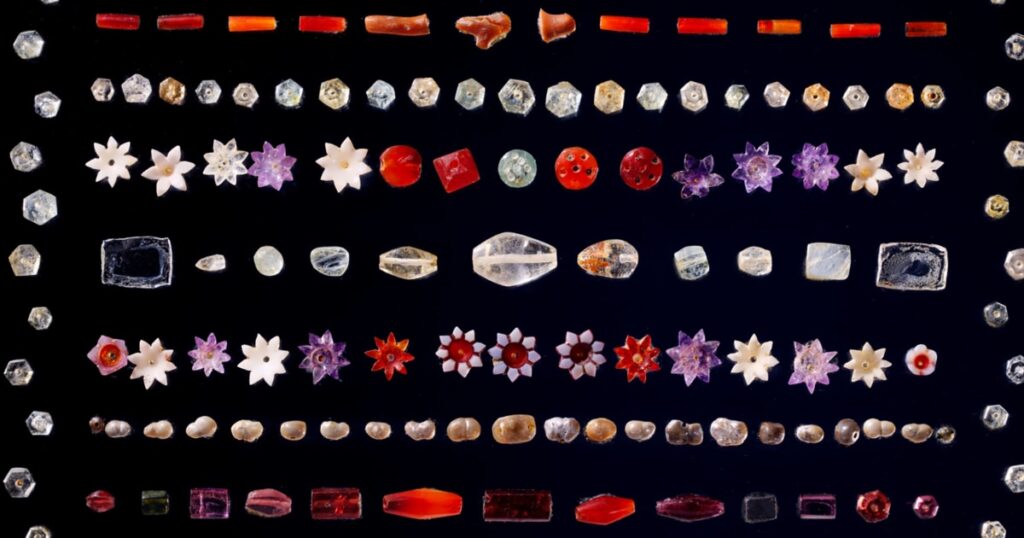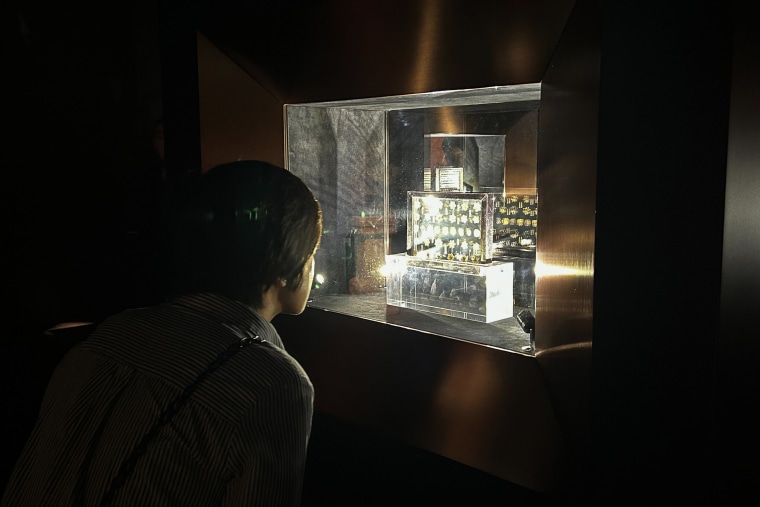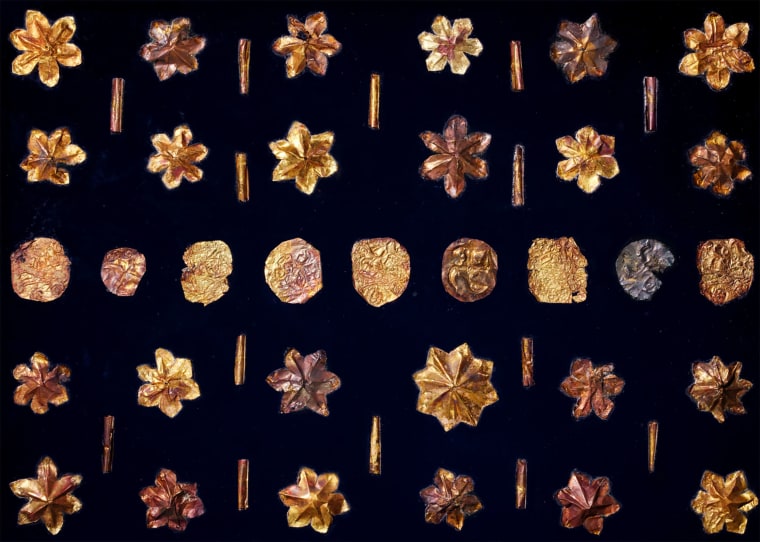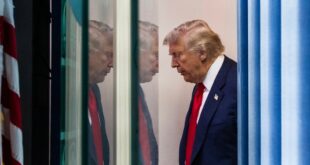
HONG KONG — Sotheby’s has postponed the auction of a collection of ancient gems linked to the Buddha’s remains after the Indian government threatened legal action and demanded their repatriation.
The auction of the Piprahwa Gems of the Historical Buddha has been postponed “with the agreement of the consignors,” three descendants of a British colonial landowner who excavated them, Sotheby’s said in a statement Wednesday.
“This will allow for discussions between the parties, and we look forward to sharing any updates as appropriate,” the auction house said.
India had slammed the planned auction of the gems, which William Claxton Peppé dug up on his northern Indian estate in 1898, as offensive to the world’s 500 million Buddhists and a violation of Indian and international law and United Nations conventions.
The Piprahwa gemstones, part of a dazzling cache of more than 1,800 artifacts that are now mostly housed at the Indian Museum in Kolkata, are named after the town in what is now the Indian state of Uttar Pradesh where they were buried in a stupa, or funerary monument, around 200-240 BC.
The gems were said to be enshrined on top of the existing cremated remains of Buddha, who died around 200 years earlier, and many Buddhists believe they are imbued with his presence.
The 334 gems had been scheduled to go on sale Wednesday in Hong Kong, where Sotheby’s put them on display in a public exhibition. They were expected to sell for about 100 million Hong Kong dollars ($12.9 million).

Secured in three glass cases and surrounded by a trove of other Buddhist artifacts, the display included shimmering penny-sized silver and gold-leaf stars embossed with symbols, along with pearls, beads and flowers cut from precious stones including amethyst, topaz, garnet, coral and crystal.
“Nothing of comparable importance in early Buddhism has ever appeared at auction,” Sotheby’s said on its website, which on Wednesday was no longer promoting the sale.
In a letter dated Monday and shared online, the Indian Ministry of Culture said the gems were sacred relics and “not separable from the remains they accompany,” according to Buddhist theology and archaeological standards.
“To separate and sell them violates religious doctrine and international ethical norms for handling sacred remains,” the letter said.
The sale was also condemned by Buddhist scholars and religious leaders.

At the time of the discovery, the British Crown claimed the find under the 1878 Indian Treasure Trove Act, giving the bones and ashes to Buddhist King Chulalongkorn of Thailand. But the Peppé family was allowed to keep a fifth of the relics, and they have been passed down for generations.
“I hope they will go to someone who really values them,” Chris Peppé, Peppé’s great-grandson, wrote in a February piece for Sotheby’s accompanying the auction catalogue.
The Indian government said Peppé, a TV director and film editor based in Los Angeles, lacked authority to sell the gems and that by facilitating the sale, Sotheby’s was “participating in continued colonial exploitation.” It said if Peppé no longer wished to have custody of the gems, they should be offered first to India.
Peppé did not respond to a request for comment. He told the BBC that his family had explored the possibility of donating the relics but had run into obstacles and that an auction seemed to be the “fairest and most transparent way to transfer these relics to Buddhists.”
 Latest World Breaking News Online News Portal
Latest World Breaking News Online News Portal






